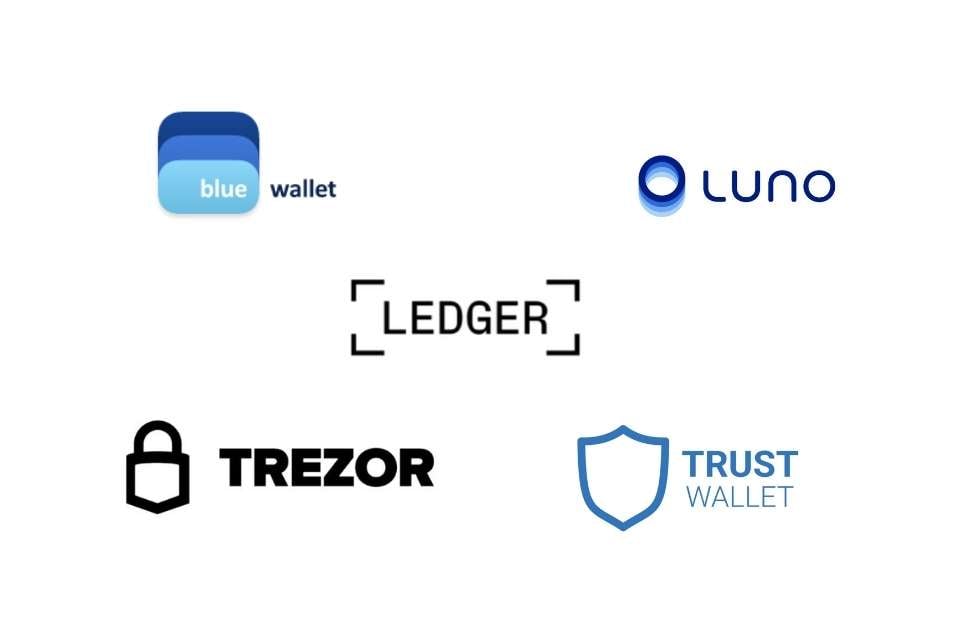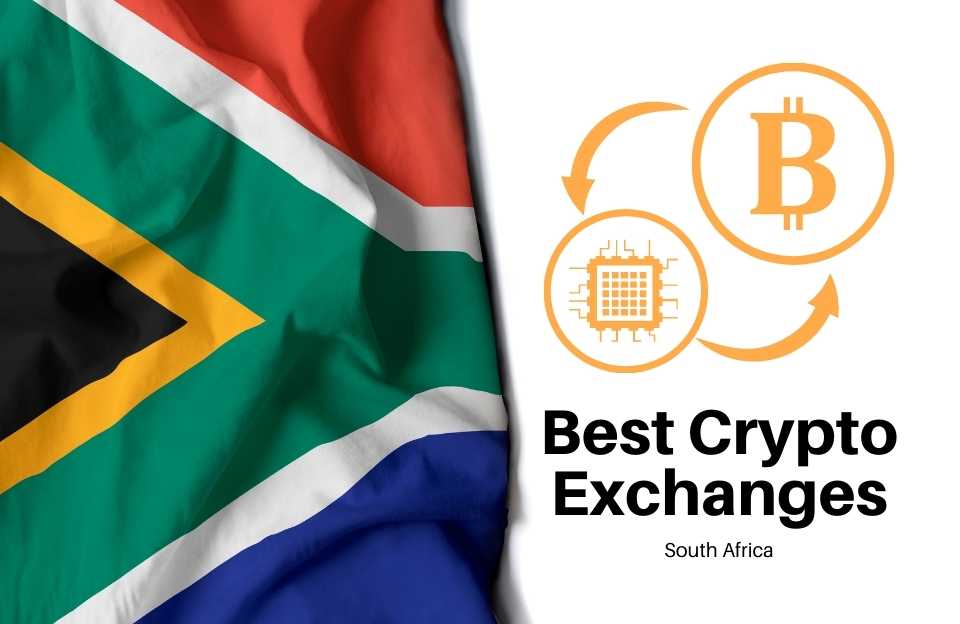South Africa Crypto Friendly Score
Carla Moretti
- Home
- /
- South Africa & Crypto
Carla Moretti
Cryptocurrency and blockchain-based technologies have been the hottest trend for the past many years. These emerging innovations are already making waves in several industries, such as fintech, supply chain, health sector, and data security. The decentralized and autonomous nature of blockchain is forcing us to rethink the way our current financial system works.
The crypto-token launched just 13 years ago, Bitcoin, is already among the top 20 assets of the world by market capitalization, beating some of the world giants, including Walt Disney, McDonald’s, and even the Bank of America. Moreover, the crypto market, as a whole, hit the $3 trillion market cap in November 2021. These stats are a testament to the incredible growth and development in this industry.
Crypto has seen widespread adoption and expansion in several regions of the world. According to research by Kucoin – a popular crypto exchange – almost 7.6 million adults in South Africa are active investors in cryptocurrencies, making it 22% of the country’s total population. The report also suggests that 65% of these investors believe crypto to be the future of payment systems.
However, despite such immense expansion, cryptocurrencies are still a novel concept to most. The majority of the population is still unaware of how this technology works and what are the official regulations regarding this emerging investment sector.
This article will guide the citizens of South Africa to make educated investment decisions and help them understand the regulatory framework.
Cryptocurrency Exchanges and Wallets

There are many reasons to use Bitcoin and other digital currencies in South Africa. The first is that they are an excellent hedge against inflation, which adversely affects traditional fiat currencies like the South African Rand. Another reason to use Bitcoin is that it supports low-cost, local, and international transactions and is lightning-fast. As such, South Africans are embracing this technology in unprecedented numbers.
To get started in cryptocurrency trading in South Africa, you will need to register with one of the various crypto exchanges operating in the country. The best place to start is by looking for a trusted and reputable platform. It is vital to select a trustworthy exchange with the best security and safety measures.
Most popular Bitcoin exchanges allow payment with an e-wallet or Google pay, which makes it convenient for new investors. Some exchanges may also accept payments via a debit card linked to a ZAR account. Once you have bought Bitcoin, you can use it to buy another cryptocurrency.
Usually, you have to transfer the holding to an exchange, where you’ll receive the currency you purchased. However, there are transaction fees and commission fees associated with this process. Check whether the exchange you’re using has customer support channels to assist you.
Binance is South Africa’s leading cryptocurrency exchange. It offers trading in over 500 digital currencies with the highest daily trading volume. Besides Bitcoin, Binance allows users to buy and sell a variety of digital assets using South Africa Rands.
For deposits, Binance offers bank transfers, credit/debit cards, and e-wallets. It is a reliable, beginner-friendly exchange in South Africa. Using the Binance exchange will allow you to convert ZAR to BTC easily and withdraw your money to a local bank account. You can also convert your ZAR to BTC to get exposure to several other cryptocurrencies.
Coinbase is another popular South African exchange for cryptocurrencies. It is easy to use and offers fast, secure transactions. Once you’ve signed up, you can buy digital currencies in as little as 10 minutes. You will have to link your payment method to Coinbase and pay a 3.99% transaction fee. Coinbase also offers bank wire transfers at competitive rates. However, the transaction fee can make Bitcoin expensive for newbies.
Apart from these centralised crypto exchanges, you also have the option of decentralised trading platforms, such as Uniswap and PancakeSwap. Unlike traditional exchanges, these marketplaces are not owned and controlled by a central authority. They are made on blockchain networks. Hence users themselves control them by participating in community voting. Moreover, you can trade up to several thousand crypto tokens with minimal trading fees.
Government Regulations on Cryptocurrency

Generally speaking, South Africa’s regulations on the crypto landscape appear to be confusing and unclear. Though there are no specific regulations passed by the South African government as of now, we can expect some sort of consumer protection and tax laws in the near future. The legislation procedure has been accelerated by the concerns raised due to $4 billion crypto scams and money laundering incidents in the country during 2021.
The government took the first step toward understanding and regulating cryptocurrencies in 2014 when the South African Reserve Bank (SARB) issued a position paper in collaboration with the National Treasury (NT), the South African Revenue Service (SARS), Financial Sector Conduct Authority (FSCA), and the Financial Intelligence Center (FIC).
The paper clarified that only the South African Reserve Bank could issue legal tenders, which means the government does not accept cryptocurrencies as payment for tax and financial institutions bill. The paper also warned the citizens about the risks associated with the use of cryptocurrencies, including price volatility, issues regarding crypto payment, financial instability, terrorism financing, consumer protection, and money laundering.
In 2016, the government founded the Intergovernmental Fintech Working Group (IFWG) to encourage development and innovation happening in the fintech industry. It was also given the responsibility to study the risks and benefits of the ongoing innovations and set up a proper environment for federal regulations. The organization was comprising members from SARB, NT, FIC, and FSCA.
The South African Revenue Service (SARS) issued a media release in 2018 to determine the government’s attitude regarding taxing crypto. SARS declared that since cryptocurrencies are neither a legal tender nor the preferred payment medium, they will not be treated as “currency” but as virtual assets only.
Hence, the government will apply the normal tax income rules and Capital Gains Tax (CGT) on all gains and losses made by investing and trading crypto assets. The taxpayers are responsible for declaring all their profits and losses accrued throughout the tax year. Otherwise, the individuals will face penalties and strict legal actions.
SARS categorized the crypto income into three scenarios. Each will be dealt with according to distinct tax implications.
- Crypto assets, such as Bitcoin, can be acquired through mining, which uses computational power to solve complex algorithmic codes and mint new units of the respective cryptocurrency.
- Individuals can trade cryptocurrencies against government-issued money (or vice versa) through cryptocurrency marketplaces and exchanges.
- Crypto owners can exchange goods and services for cryptocurrencies. The exchange will be considered a barter transaction. Therefore, regular barter transaction rules will apply.
In 2019, the government formed the Crypto-asset Regulatory Working Group under IFWG, comprising members from different financial institutions. Meanwhile, the National Credit Regulator (NCR) and SARS also became a part of IFWG. The purpose of the Crypto-asset Regulatory Working Group was to investigate and study cryptocurrencies and all other blockchain-based technologies to compile a cohesive report and put forward the propositions for a strong regulatory framework.
Tito Mboweni, the Finance Minister at the time, said, “It is anticipated that, following broad industry comment and participation, the crypto assets regulatory working group will be ready to release a final research paper on the subject during the course of 2019.”
The propositions were released in the position paper on crypto assets published by IFWG. It provided several specific recommendations for the development of impending regulations and also suggested changes in the existing regulations. The recommendations were based on the following three pillars:
- To deal with illicit activities by forming anti-money laundering (AML) and counter-terrorism financing laws
- A framework to monitor cross-border transactions
- The implementation of financial sector laws
The position paper is currently being used as a foundation in the ongoing efforts to structure a thorough regulatory framework around the crypto assets by the South African government. The legislative process is led by SARB, while several other federal bodies are a part of it.
DeFi Acceptance

DeFi is an automated financial system based on blockchains and smart contracts. The goal of DeFi is to mimic existing financial services while making them more transparent and accessible to the masses.
Specifically, the DeFi system facilitates the lending and borrowing of crypto-assets. These decentralized financial services allow users to receive payments in return for a small percentage of the funds they loan out. The architecture of DeFi should include the following components: governance, technology, and regulatory approaches.
A recent survey conducted by Valk – a DeFi platform offering tools for retail and professional investors – shows that 68% of the respondents plan to invest in DeFi in the near future. With the global markets experiencing increased volatility and traditional financial institutions offering less yield by the month, investors can take advantage of this opportunity to reap outsized dividends. DeFi is already accepted in some markets, and the trend is growing in South Africa.
Traditional financial institutions are actively exploring the integration of DeFi into their existing offerings. They are aware of the growing consumer demand for decentralised financial services. Traditional finance relies on the use of bank deposits, which are a widely accepted medium of exchange. DeFi also offers the ability to trade across borders round the clock.
But before DeFi becomes mainstream, it needs to satisfy a number of conditions. Until we reach that point, users cannot use these services to their full potential.
To ensure market integrity and financial stability, the infrastructure of DeFi should be based on decentralised servers. The government must embed development, provision, and control into the system to make this happen.
The growth of DeFi is raising concerns about financial stability in the overall economy. The volatility and pro-cyclicality associated with crypto markets are primarily driven by fluctuations in collateral prices and associated margins. If these margins fall, a downward price spiral will follow. However, such episodes have little impact outside of crypto markets. This is why decentralised finance should be carefully regulated.
One of the main problems associated with DeFi is its lack of expert code auditors. This means that only a small number of people are qualified to review the code. In addition, even qualified experts may miss a bug or two, which could affect investment security. While the technology is generally secure and transparent, it is still far from being completely regulated in South Africa. This creates a significant risk.
South Africa’s citizen can access DeFi platforms following these steps:
1. Choose a Wallet
The first step is to choose a suitable cryptocurrency wallet. A crypto wallet acts like a regular bank account, allowing crypto holders to send and receive payments. The right wallet varies from user to user, depending on several factors, such as the required security level, the blockchain it is developed on, and the type of crypto tokens you need to use.
2. Fund the Wallet
After selecting a crypto wallet to use for the DeFi services, you need to set up an account and send some funds to it. Unfortunately, most decentralized crypto wallets do not allow crypto users to buy crypto tokens using fiat currency. That’s why you first need to purchase some crypto funds using a centralized exchange, such as Coinbase or Binance, and send them to your wallet’s blockchain address.
3. Connect the Wallet to the DeFi Platform
Now, visit the official website/application of the DeFi platform you want to use. It can be a decentralized marketplace, staking pool, or a lending and borrowing service provider. You will find a “Connect Your Wallet” option somewhere on the homepage. Click on it, enter the required information, confirm the procedure in your wallet app, and you’re ready to go.
Following are some of the popular DeFi platforms in South Africa:
- AAVE
- Kyber Network
- Lucky Block
- Uniswap
- Decentraland
- SushiSwap
- Cosmos
- Yearn. finance
Financial Services

Due to the uncertainty in the regulatory landscape, providing cryptocurrency financial services is challenging for most firms. However, almost 90 crypto financial service startups are currently working all over South Africa. These businesses cover a range of services and financial sectors. Here is a list of the most exciting of these crypto service providers.
- The Sun Exchange: Working since 2015, the Sun Exchange is a solar project investment platform based on decentralised crowdfunding. It provides crowd-lending solutions to purchase or take solar photovoltaic cells on lease to individual and institutional investors. After installation, investors can lease them to other businesses.
- NFTfi: NFTfi is a lending platform that allows crypto users to lend and borrow funds by putting their NFT holdings as collateral. The platform provides a P2P marketplace for ERC-721 tokens and deals in ETH tokens.
- Xago: Founded in 2019, Xago is an online payment platform made for Ripple-based transactions. It allows users to send, receive, and accept crypto transfers made on the Ripple blockchain.
- Dafri Bank: Dafri Bank is an individual and institutional bank offering a range of crypto financial services. It hosts saving and current accounts, provides NFC-enable prepaid cards for online and offline payments, and supports bill payments. On top of that, it also offers DeFi loans, APIs, and much more.
Transparency
While cryptocurrencies are great opportunities for those who do not have access to traditional financial services, many governments and institutions in Africa are harnessing this technology for better transparency and control for customers and citizens. To function, all crypto financial service providers and trading platforms must abide by AML and counter-terrorism financing laws.
If the government uses blockchain technology everywhere, it could make people start acting differently. In a lot of African countries, corruption, bad leadership, and lack of responsibility are big problems, but people think it’s just how things are supposed to be.
People do not have an idea what good governance looks like. Blockchain technology can help change this. It is built with integrity by design and can bring transparency to public finance. In South Africa, for example, blockchain transparency could make government-owned data more transparent.
A consensus mechanism is used in blockchain technology to regulate transactions and trust within a transaction process. Healthcare organizations may be able to reduce costs and eliminate intermediaries and delays in service delivery by using this technology. However, South Africa’s research on the blockchain is limited as it is a relatively new field. In the meantime, healthcare organizations can continue exploring blockchain technology to ensure it benefits its users. The technology has significant potential to improve South African public health.
For example, UNICEF is leveraging blockchain technology to improve school connectivity. Blockchain can offer new financing mechanisms and streamline necessary operational processes in this regard. Project Connect, for example, is mapping every school in the world and using the data to measure society’s progress.
By using blockchain technology in this way, UNICEF can use this data to make better decisions about how to invest money in the future. And if that’s not enough, UNICEF is using blockchain technology to improve access to education for the young population.
Spending Crypto in South Africa

Though cryptocurrencies are not accepted as legal tender, using them for payments and online purchases is legal. As Bitcoin, Ethereum and other cryptocurrencies continue to grow in popularity and relevance, more and more retail stores and online service providers are accepting cryptocurrencies as an authentic payment method.
These are some of the top retail stores to spend crypto in South Africa.
- Takealot: Takealot is one of the largest online e-commerce stores in South Africa. You can find a wide variety of products, including fashion, health, gaming, music, electronics, books, and much more here.
- Raru: Raru is an online store for gaming, music, movies, and electronic products. The platform accepts crypto payments.
- MyRunway: MyRunway is South Africa’s most prominent fashion shopping store. They provide a large number of sales deals on multiple items. However, they only last a few days, and the stock is limited. The fashion store has recently started accepting crypto payments.
- Cape Coffee Beans: Cape Coffee Beans is a South Africa-based coffee shop selling different types of coffee beans harvested locally. You can also buy coffee makers, grinders, and many other accessories.
- 6Dot50: 6Dot50 is a South African start-up allowing users to spend crypto tokens, such as Bitcoin, Ethereum, and Litecoin, at thousands of retail stores, including Checkers, Wimpy, and Steers. Users can convert their cryptocurrencies into vouchers to pay for a variety of products and services.
Traditional Banking Activities in Cryptocurrency

As the digital currency industry continues to evolve, South Africa’s banks are experimenting with distributed ledger technology and digital currency. Such experiments cannot be conducted in isolation from the broader financial sector.
A few months ago, Governor Lesetja Kganyago started Project Khokha 2, a project aimed at exploring the use of digital currency, blockchains, and tokenized money in South Africa. Moreover, South Africa has also started exploring Central Bank Digital Currencies (CBDC) to devise a proper developmental program for the CBDC settlement system.
Financial institutions in South Africa are considering regulating the cryptocurrency industry. The Financial Sector Conduct Authority, the National Treasury, and the South African Reserve Bank are examining the legality of cryptocurrency and approaching the general public to provide input.
While the regulator’s stance is still unclear at this point in time, the South African Reserve Bank has announced that it plans to regulate the use of crypto assets. It has already started tracing transactions and identifying individuals for suspicious activities, thus, launching successful forfeiture proceedings.
The SARB’s Asset Forfeiture Unit grabbed hold of crypto assets involved in unlawful schemes. They will keep a close eye on these happenings to make sure people are safeguarded from deceitful actions. It will be fascinating to witness how the rules evolve, just like in other areas.
Closing Thoughts
The crypto industry and other blockchain-based technologies are expanding rapidly. They are already making progress in several fields, such as the entertainment industry and the art world.
Experts also suggest that these technologies will be an integral component of Web 3.0. On top of that, many multinational companies such as Facebook (Meta), Spotify, Stripe, and PayPal have already started integrating blockchain innovation into their existing business model.
With such explosive growth, it’s crucial for the South African government to formulate a regulatory body for overseeing and managing this thriving sector more efficiently. These steps will not only protect the users from risks but also encourage innovative developments in the crypto industry to continue to take place in the world.
Our extensive analysis of the South African Crypto market doesn’t stop here. You can read about our list of Crypto Guides for South Africans to extend your knowledge in regard the coexistence of Crypto and South Africa.
You are not from South Africa? Visit our Home Page to find more content related to your Country.
Skrumble.com provides all its content for informational purposes only, and this should not be taken as financial advice to buy, trade, or sell any investment instruments or products, including but not limited to cryptocurrencies, or use any specific exchange. Please do not use this website as investment advice, financial advice, or legal advice, and each individual’s needs may vary from that of the author. Investing in financial instruments, including cryptocurrencies, carries a high risk and is not suitable for all investors. It is possible to lose the entire initial investment, so do not invest what you cannot afford to lose. We strongly advise conducting your own research before making any investment decisions. This post includes affiliate links with our partners who may compensate us.
To view our privacy policy read here.






